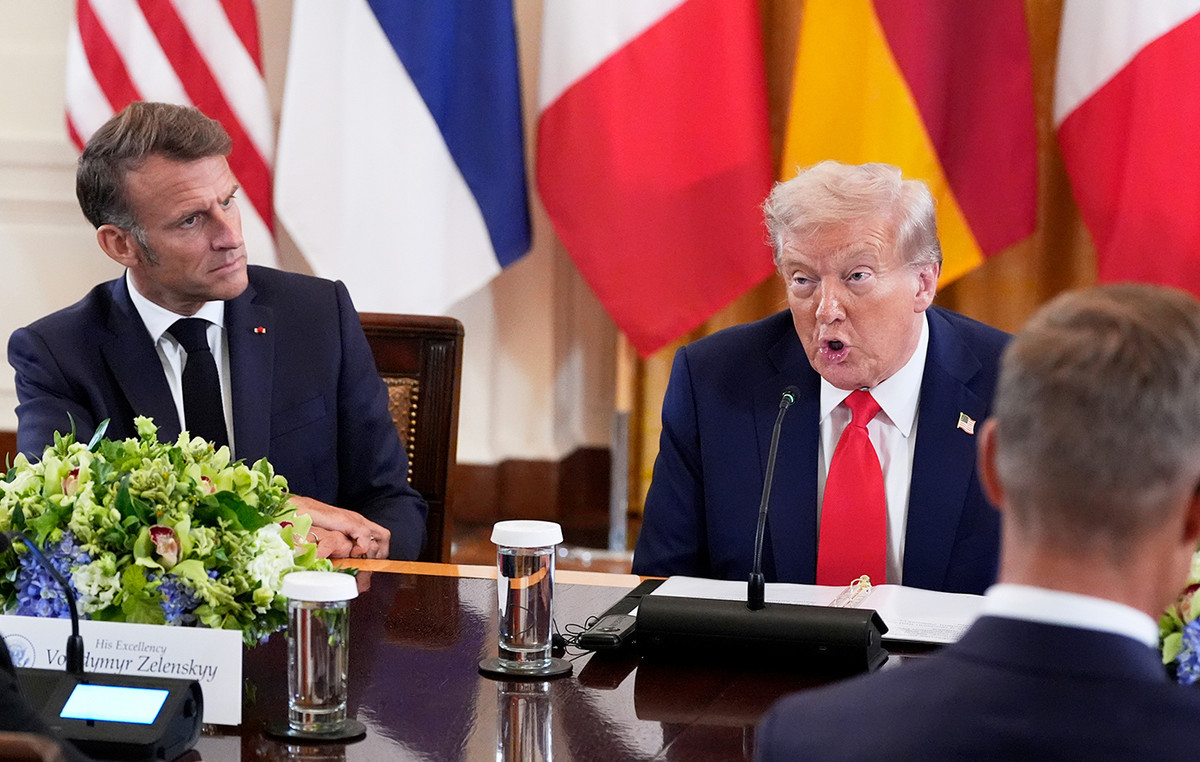THE Petrobras entered in the last few days in a trajectory of valorization in the stock Exchange but the state-owned company’s shares have even more room for growth, according to experts.
To CNN Brasil Business analysts point to factors such as the state-owned company’s good margins, record levels of dividends and fuel pricing policy as positive factors.
However, there are risks. The main one is the political, characteristic of companies like Petrobras, where the federal government is the majority shareholder.
On Wednesday (10), Inter began covering the actions of the company with a buy recommendation, establishing a target price of R$ 46, indicating a potential for appreciation of 24% in the shares considering the price of the previous day, of R$ 37.23.
Fundamentals
Rafael Winalda, stock analyst at Inter and author of the report on Petrobras, highlights that the central point behind investments is the maintenance of the current fuel price policy, which follows the international values of the Petroleum .
Inter projects a downward trajectory in the barrel price in the short term, reaching US$ 80 in 2023 and US$ 65 in 2025. Even so, the state company would still have positive numbers.
“She could generate a lot of cash. There was a change in management, with a strong focus on pre-salt , which has very high profitability. The cost of extraction is US$ 6 a barrel, while onshore and post-salt it reaches US$ 10, up to US$ 15”, says Winalda.
The continuity of strong financial results would justify the potential for the company’s shares to appreciate, according to the analyst, even in a scenario of cheaper oil than currently.
Ilan Arbetman, Research analyst at Ativa Investimentos, assesses that Petrobras shares are “cheap” even after the recent appreciation, which he attributes to the record dividends announced in July, with a good part “the result of the operating cash generation itself”.
“When you look back, you see strong cash generation a few quarters ago. We hope to see a continuity of today’s conditions for the near future, with strong oil and an operational structure very close to the one it already has today, where it produces more than 72% of the oil in the pre-salt”, he says.
In addition, Petrobras has been trading at multiples lower than those of other major foreign oil companies, points out Levante equity analyst Flavio Conde.
Main reference for the market, Petrobras’ EV/EBITDA is 2.5 times, far from the historical average of the state company of 4 times, the average of large oil companies around 6 times and of giants in the sector, such as Exxon, which is at 15 times.
For Conde, the difference is due to the “great political risk” in the company, which is state-owned and not free from government interference, with the greatest risk in its current pricing policy.
“Without the state issue, the shares would easily be at R$ 48. Today they are around R$ 30. This risk is priced by investors”, says Conde.
He says, however, that many in the market still keep the action in their portfolios even fearing interferences such as between 2014 and 2016 and the changes of presidents in 2021 and 2022.
The reason would be the “record dividends, and the prospect of continuing these large dividends in the coming quarters”.
Winalda, from Inter, also believes that the main factor in the discount on the company’s shares is political risk, more specifically in the pricing policy.
He explains that, as Brazil is self-sufficient in oil production but not in its derivatives, it ends up needing to import part of these fuels to meet demand. If the prices practiced by Petrobras are lower than the international ones, the importers do not see an advantage in imports, and there is a risk of shortages.
In this scenario, Petrobras needs to meet all the demand, and also bear the costs of insuring prices, increasing its indebtedness, reducing margins and possibly incurring losses.
This was the scenario until 2016. Subsequently, the state-owned company had a “crucial” change, with an improvement in governance that involved “incorporating independent members for decision-making”.
According to Winalda, this made the company “focus on results, in the pre-salt, exploration and production, with a price policy at parity”.
Arbetman believes that the drop in the EV/Ebitda indicator illustrates a lack of confidence on the part of investors in the company, who still fear the political risk linked to the investment.
Another point that weighs against the company, he says, is a “new moment on the global scene”, with the strength of the so-called energy transition.
“The role of fossil fuels in the future is being transformed”, he points out, which could cause oil companies to lose ground in the coming years.
Even so, he assesses that Petrobras continues with “strong cash, and a debt below the value that allows it to pay more dividends. There is also a position of comfort for this rule to continue to be complied with”.
Therefore, he says that if the company continues to prioritize production in the pre-salt layer and maintain price parity, there is room for appreciation. The analyst works with a target price of BRL 46.
“The market is still conservative when looking at Petrobras, which is a company that has been delivering a lot of cash, but there are future risks that prevent pricing closer to the potential value”, he says.
perspectives
Conde states that the proximity of the period electoral tends to reinforce the view of the political risks for the state-owned company.
Proposals such as reducing dividends, changing pricing policy and resuming investment in refineries tend to be frowned upon, and reflect negatively on the company.
Winalda considers that, “regardless of the political framework, the main point is to maintain parity, which is what we have as the most likely scenario”.
Gabriela Cortez, executive manager of the stock research area at Inter, assesses that “as in other election years, there will be a lot of volatility, and there may be pressure pulling down prices on Petrobras shares depending on comments, policies”,
However, she states that, so far, volatility has been lower than in other election years as the market knows the history and government profile of the favorite candidates.
Conde also recalls that the risks linked to the elections are already priced in Petrobras shares, with little room for declines for this reason.
For Arbetman, “the two currents that are at the forefront in the electoral polls somehow touch Petrobras with a political nature that undoubtedly ends up reflecting in the price of the paper”.
He believes, however, that thanks to the legal changes in governance in recent years, “the company can handle more [pressões] today, but when the shareholder buys the paper, he doesn’t want any problems, and charges this premium, resulting in the discount we see today”.
Source: CNN Brasil
I am Sophia william, author of World Stock Market. I have a degree in journalism from the University of Missouri and I have worked as a reporter for several news websites. I have a passion for writing and informing people about the latest news and events happening in the world. I strive to be accurate and unbiased in my reporting, and I hope to provide readers with valuable information that they can use to make informed decisions.







